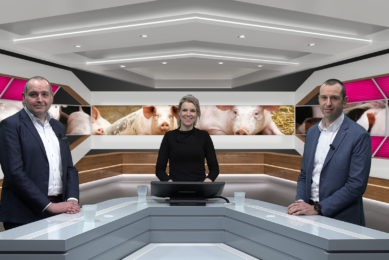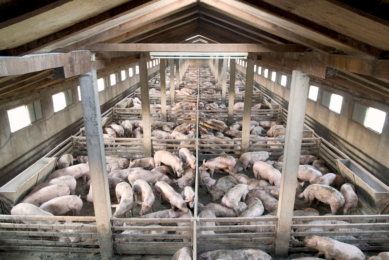Re-watch webinar ‘No antibiotics ever’

The theme of ‘No antibiotics ever’ in pig production was intensively discussed recently, in a specially dedicated webinar organised by Pig Progress. The webinar, which was broadcast on September 17, is now available to watch on this website.
Speaking at the webinar were 3 well-informed speakers, all casting a light on this highly relevant topic from their own angles. Although it is obvious that in exceptional cases antibiotics may have to be available to overcome pathogenic pressure, it is tempting to see how much the usage can be further reduced.
Critical success factors reducing antibiotics
Speaking on behalf of Royal GD was Jobke van Hout, DVM, PhD. The organisation, based in Deventer, the Netherlands, provides animal health expertise, research and development, diagnostics and comprehensive animal health solutions. Dr Van Hout presented an overview as to what the Netherlands did to reduce antibiotic usage in its pig production over the last years.
She is currently involved in ongoing research evaluating critical factors to keep antibiotics low on sow farms in the Netherlands. Apart from technical critical success factors she also said that “attitude, behaviour and knowledge of farmers are significantly associated with the level of antibiotic use.”
Feed hygiene and gut health
On behalf of animal nutrition company Perstorp, Dr Sofia Rengman spoke. She is business development manager, and she zoomed in on feed hygiene and gut health. She pointed to the need to reduce the pathogenic pressure, especially when it is coming from feed and water.
A support of the gastro-intestinal tract would also be preferred, Dr Rengman said, highlighting tributyrin. This is a feed additive that can support piglet gut health in various ways after weaning.
Nutritional health strategies without antibiotics
On behalf of DuPont Animal Nutrition, Dr Deepak Velayudhan, swine scientist, addressed nutritional health strategies without using antibiotics. Dr Velayudhan is responsible for animal studies associated with new product development and registration.
He explained the differences between dysbiosis and nutribiosis. The understanding of nutribiosis, Dr Velayudhan explained, brings new insights to animal producers, enabling them to “improve gut health, improve animal welfare and improve animal performance.”











